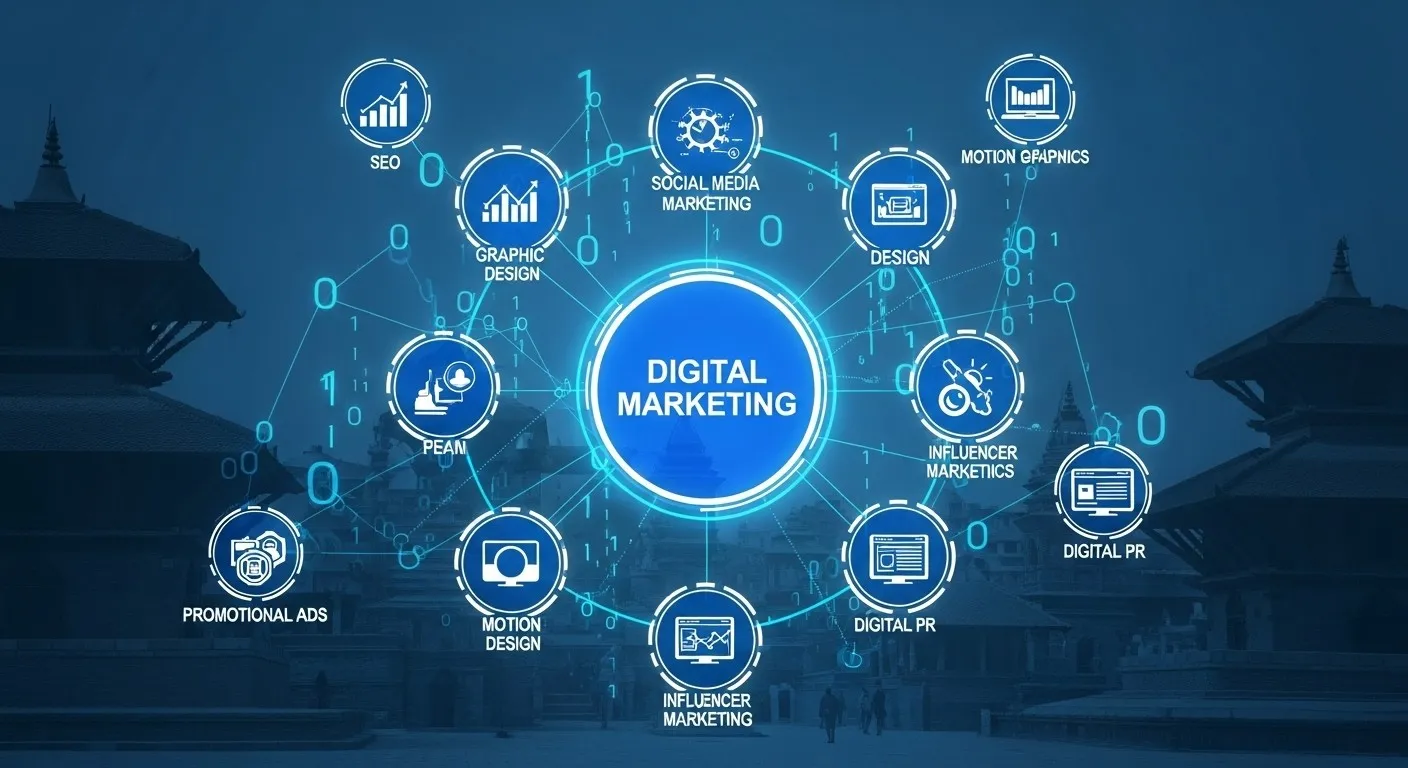Big Data has shaped the digital marketing space into something brilliant, where every business gets to know enormous amounts about their target audience and make data-driven decisions. In today’s competitive environment, using Big Data rightly will help optimize marketing strategies and improve customer experience. Today, in this blog, we discuss Big Data’s use in digital marketing to drive results and grow business better.
What is Big Data?
Big Data simply refers to huge amounts of structured and unstructured data that organizations compile from different sources, including websites, social media, customer databases, and online transactions. If analyzed and processed efficiently, it surely can yield very valuable insights into consumer behavior, preference, and trend.

Customer Behavior Understanding
Among the major advantages Big Data offers to digital marketing is insight into customer behavior. Businesses analyze data from every touchpoint, including social media interactions, website visits, and purchase history, and in return, find patterns and trends representative of their customers’ needs and preferences.
Example: Big Data can show businesses which products their customers are most likely to buy, at what time of day they prefer to shop, and what kind of content they will most like.
2. Targeted Marketing Campaigns
Personalization remains the backbone of digital marketing today. Big Data assists in segregating the target audience into small, more defined groups based on various attributes like demographics, purchase behavior, and interests. Based on such information, businesses can create enormously targeted and personalized marketing campaigns targeted toward their audiences.
Example: Big Data allows an organization to carry out personalized marketing on their products by suggesting to a customer, through his or her browsing history or recent purchases, items related to such, thus increasing the possibility of conversion.
Improvement of Customer Experience
Customer experience forms the most integral part of any digital marketing strategy. Big Data will help a firm predict the need and preference of any customer so that a firm can give personalized experiences across every touch point. Companies, through real-time analysis of data, can craft the content, product suggestions, and offers for each particular customer to make the interactions all the more meaningful.
Example: A customer logs on to an e-commerce site and could be presented with similar product recommendations or relevant ads as he navigates the website, using Big Data in real time. This will make the experience far more engaging and personalized.
Optimizing Advertising Spend
Big Data also lets businesses optimize their marketing budget spend on the channels and campaigns that bring in maximum return. By looking at click-through rates, conversion rates, and other performance measures, companies can optimize their advertising spending to make sure they are investing in what works.
Tip: Leverage data-driven insights to make real-time adjustments to bidding strategies, targeting options, and creative elements for maximum effectiveness.
Predictive Analytics for Better Decision Making
Predictive analytics is one of the many categories that Big Data has. It uses historical data with statistical algorithms to predict future results. It can be utilized in digital marketing for gathering future predictions about customer behavior, calculating emerging trends, and making strategic decisions based on those predictions.
Example: Predictive analytics can make the marketing teams forecast the next big trend in their industry or possible customer churn, which in turn empowers them to do some damage control or enhance their initiatives proactively.
Content Marketing Optimization
Big Data lets one know what kind of content works best with audiences. It, therefore, helps organizations drive much better content creation through the metrics of engagement, such as likes and shares, comments, and time spent on a page. Such data supports organizations in identifying the most effective topics, formats, and channels of distribution.
Example: An organization can look at the blog topics most frequently visited or the types of videos that attract the most engagement and use those to guide them on the development of future content.
Big Data’s Contribution to Better SEO
SEO is always about digital marketing. Big Data can be used for analyzing keyword performance, observing the trend of different search engines, and tracking competitors’ ranking positions. These can help a business in optimizing their content and structure of the website to give better output over search engine result pages.
This in turn would involve Big Data in long-tail keywords and emerging search trends which would yield an extra edge of competitiveness for a certain business.
8. Social Media Insights
With social media comes a lot of data being generated every single day. This is helpful in business, as one can make use of the data in brand monitoring, in customer sentiment tracking, and even in finding influencers in one’s industry. Analyzing social media data helps companies drive campaigns that would target their audience best while improving brand awareness.
Example: A brand, through social media conversation tracking, will be able to know what’s trending and produce relevant content which would address the needs of current consumer interest.
Enhancement in Conversion Rates
Big Data analytics can enable a business to pinpoint several touchpoints that create bottlenecks in the customer journey or are part of behavioral segments that influence conversion rates. Anything from poorly designed landing pages to multi-step checkouts may result in users falling off. In that respect, one would be ready with data-driven adjustments to help boost conversion rates.
Suggestion: Visualize the choke points through heat maps and behavioral analytics, and take corrective steps to optimize the user experience for smoother conversions.
Fraud Detection and Risk Management
Fraud detection is an important subdomain in the case of digital marketing. Big Data analyzes suspicious activities and develops a pattern of fraud-like behaviors, bot traffic, or creation of fake accounts. Companies can reduce such risks by acquiring /data analytics that make sure the company’s marketing efforts reach actual customers.
Example: Big Data algorithms will find anomalies in online transactions and flag those as abnormal from typical patterns of fraud.
Conclusion
Big Data continues to revolutionize how companies approach their digital marketing strategies. With data empowered to understand customer behavior, optimize marketing strategies, and personalize all processes, companies achieve better results with more growth. In this scenario, the effective use of Big Data is no longer a privilege, but a well-recognized need.
Whether it’s improving SEO, bettering the conversion rate, or just giving customers a much better experience, Big Data will set you up for success in your digital marketing.



